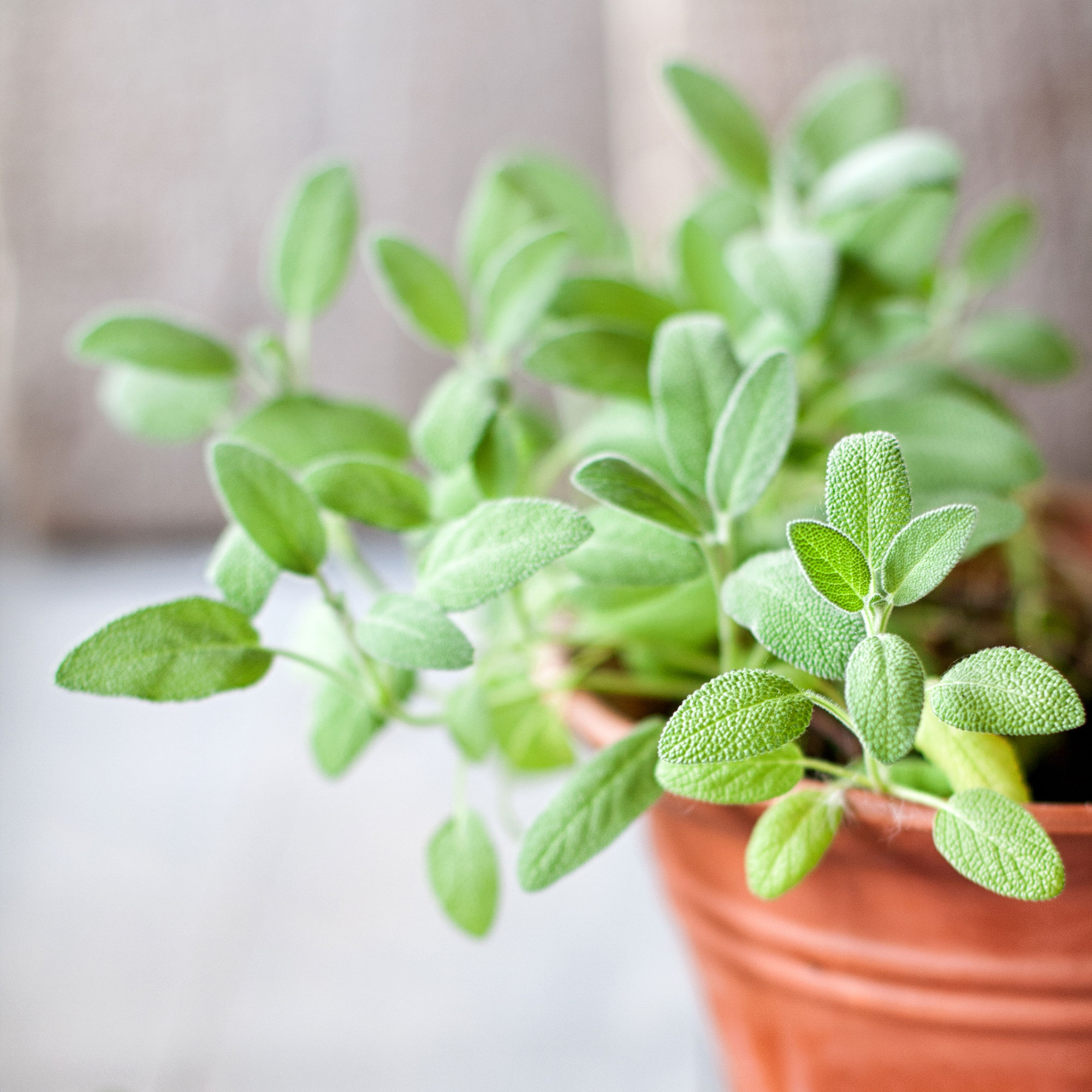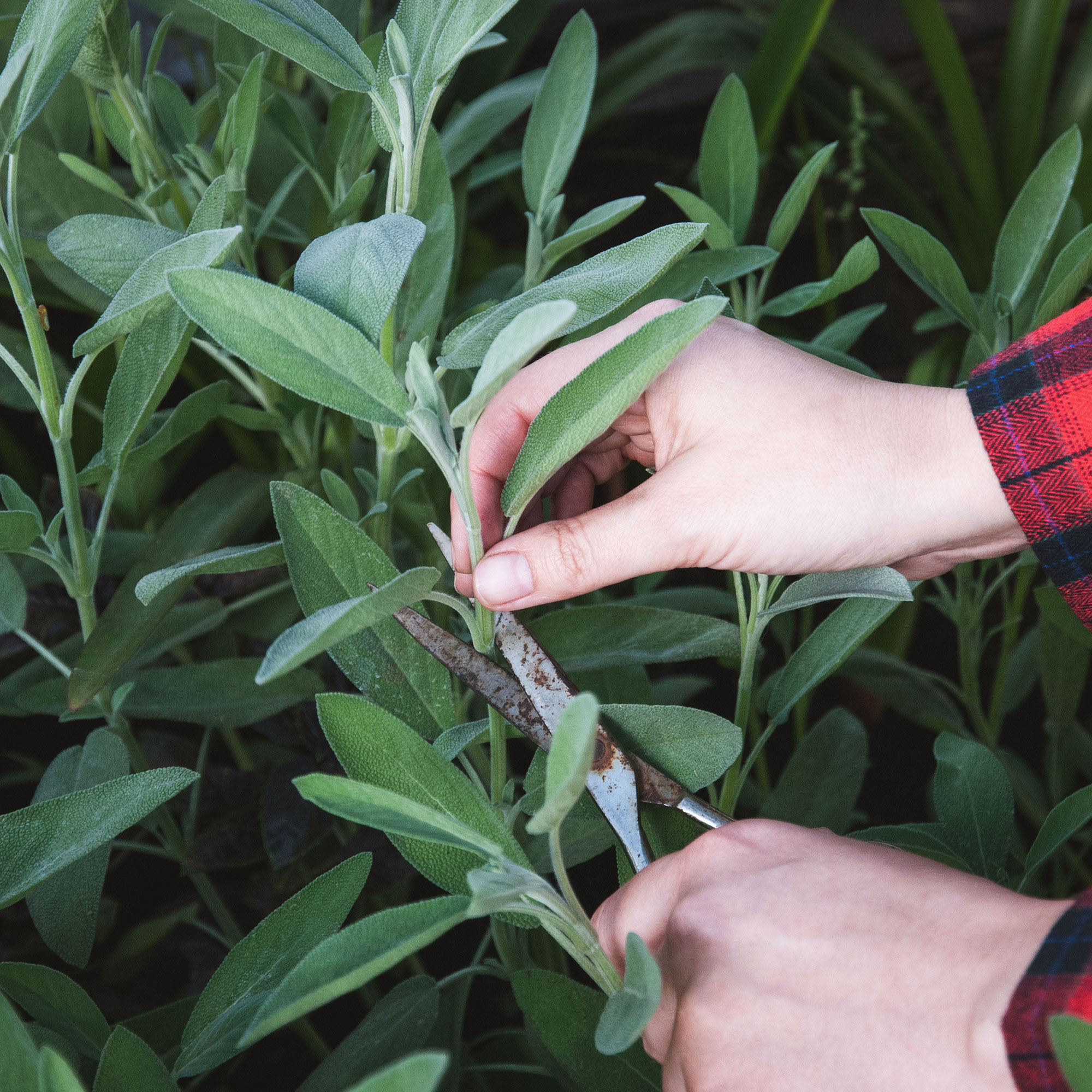
Learn how to take sage cuttings and you'll have an endless supply of this delicious Mediterranean herb for free.
Sage (Salvia officinalis, if you're feeling fancy) is a perennial herb belonging to the mint family hailing from the Mediterranean region. It has an earthy taste and aroma with notes of eucalyptus and lemon so it is super versatile for cooking and is delicious when teamed with chicken and pork or added to creamy pasta dishes.
The attractive silvery grey leaves of sage are bursting with antioxidants so they have medicinal purposes that stem back centuries. With so many assets it's no wonder sage is such a hero of herb garden ideas and so why wouldn't you want more?
How to take sage cuttings

Whether you learn how to take cuttings the Monty Don way or prefer a standard propagation style, the skill is one of the budget garden ideas to master.
Read on to discover just what a 'cinch' knowing how to take cuttings from sage can be.
What you'll need:
- A sage plant with plenty of growth
- A clean, sharp knife or pair of secateurs
- Peat free potting compost, like this all-rounder from Miracle-Gro
- Coarse grit or perlite, such as Gro Sure Perlite
- Hormone rooting gel or powder, like this one from Amazon (optional)
- Individual seedling pots
- plastic bag and rubber bands
1. Prepare soil
First, fill a small pot with compost mixed with perlite or sand. The soil needs to drain well.
2. Take a cutting
Select a young, healthy stem and cut diagonally using a sharp, clean knife or pair secateurs just before a leaf node - the part of the stem that swells and leaves emerge.
'Choose stems that are 10-12 cm long and are not flowering. A softwood cutting should be a new growth that is flexible and soft, says Jane Dobbs from Allan's Gardeners.
'Cut stems just below leaf nodes - the point where leaves join the stem.'
'Remove the lower leaves, leaving just a couple at the top' adds Petar Ivanov, gardening and plant expert at Fantastic Gardeners.

3. Add growth hormone
At this point, you may wish to dip or dab the bottom tip of the cut stem in a rooting hormone powder or gel.
'If you dip in rooting hormone, this can increase the success,' explains Petar.
4. Plant cutting in pot
Make a small hole in the soil and gently place the stem cut side down. Scoop back the soil and firm it with your fingertips.
'Make sure the cutting's bottom end is in the soil about 2-3 cm deep, and press the soil around its base,' says Jane.
A plastic bag placed over the pot will create a humid environment and encourage growth. Seal and secure the bag around the pot lip with a rubber band.
'Put a plastic bag over the pot or use a propagator to keep the air moist,' says Jane.
Water regularly but ensure the pot does not become waterlogged.
'Put it in a warm, bright spot. Keep the soil moist but not soggy - roots should form in 4-6 weeks,' adds Peter.

5. Transfer into the ground or larger pot
After about six weeks, once roots have formed, transfer the new clone herb outside in your kitchen garden or transfer it into a bigger pot and place it in a sunny spot on a patio.
'Transplant the cutting into a larger pot or in the garden once it's established a good root system,' advises Jane.
Being Mediterranean, sage is a drought-tolerant plant, so ensure its soil is self-draining and is never water-logged.
Sage is one of the best vegetables to grow on a windowsill, so why not let it fill your kitchen with fragrance and sage leaves for recipes at your fingertips?
FAQs
When's the best time to take sage cuttings?
'Sage cuttings should be taken in late spring or early summer when the plant is actively growing', advises garden expert Jane Dobbs.







